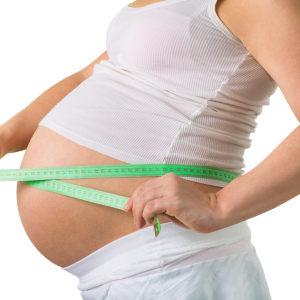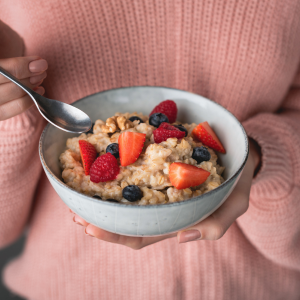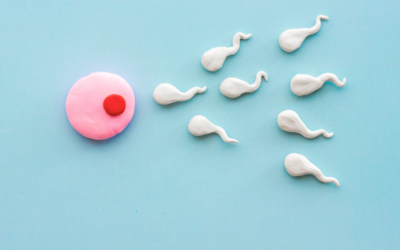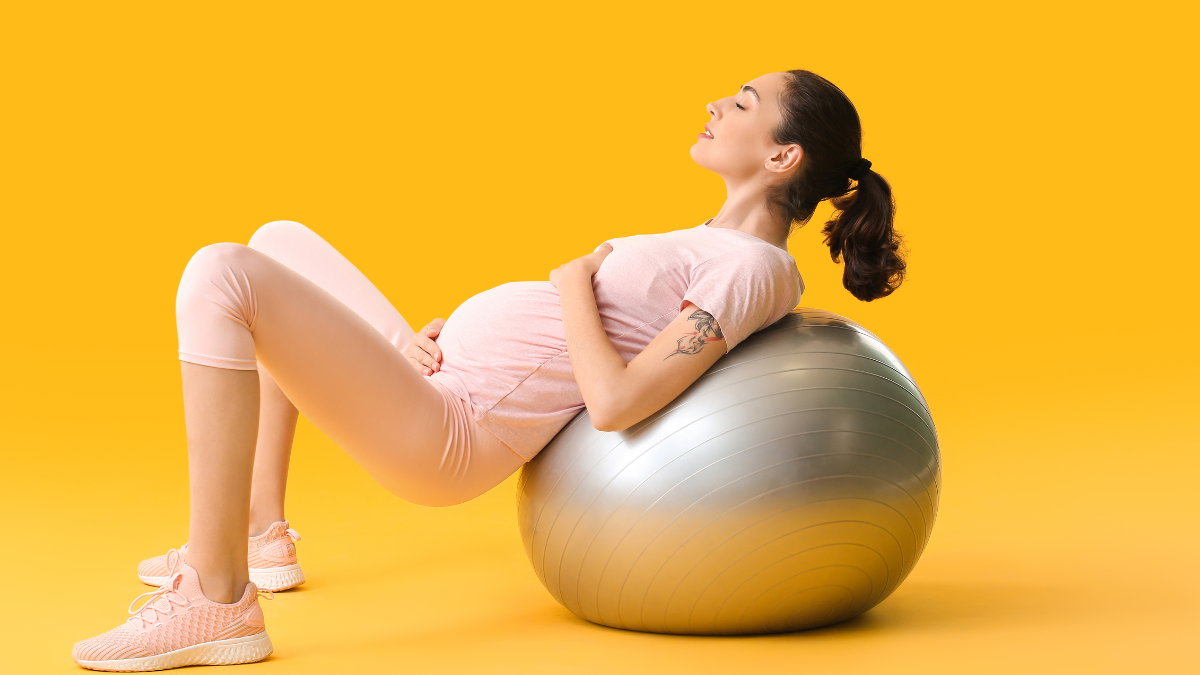Being 17 weeks pregnant is an exciting milestone in your pregnancy journey. At this stage, your baby is growing rapidly, your body is adjusting to new changes, and you may start noticing subtle movements for the first time. Whether this is your first pregnancy or not, week 17 brings a mix of curiosity, wonder, and sometimes a few unexpected symptoms.
In this guide, we’ll explore everything you need to know about being 17 weeks pregnant—from your baby’s development and common symptoms to weight gain, cravings, and essential care tips. By understanding what’s happening this week, you can feel more confident, prepared, and connected to your little one.
Table of Contents
Physical Changes You May Notice at 17 Weeks Pregnant
At 17 weeks pregnant, your body continues to adapt to your growing baby. Some common changes include:
- Belly growth: Your bump may be more noticeable as your uterus expands.
- Breast changes: Breasts may feel fuller, heavier, or more sensitive.
- Skin changes: Some women notice stretch marks, darkened skin patches, or the “pregnancy glow.”
- Increased energy: Many women feel more energetic compared to the first trimester.
- Back discomfort: As your belly grows, you might experience mild backaches or pelvic pressure.
It’s normal for these symptoms to vary from woman to woman. Paying attention to your body and maintaining proper posture can help reduce discomfort.

Baby Development at 17 Weeks Pregnant
Your baby is growing quickly, and remarkable developments are happening inside your womb:
- Size: Your baby is about the size of a pomegranate, roughly 5 inches long and weighing around 5 ounces.
- Movements: You may start feeling early flutters, known as “quickening,” especially if this isn’t your first pregnancy.
- Facial features: Eyebrows, eyelashes, and tiny hair are forming.
- Bones and muscles: Your baby’s skeleton is hardening, and muscles are becoming stronger.
- Ears and hearing: The inner ear is developing, and your baby may start responding to familiar sounds.
This is an exciting milestone as your baby becomes more active and visible on ultrasounds.
Common Symptoms at 17 Weeks Pregnant
Some symptoms you may experience at 17 weeks pregnant include:
- Increased appetite as your body needs more energy
- Mild swelling in hands, feet, or ankles
- Nasal congestion or mild nosebleeds
- Mood swings due to hormonal changes
- Heartburn or indigestion caused by your growing uterus pressing on your stomach
Tracking your symptoms can help you notice patterns and discuss any concerns with your healthcare provider.
Can You Feel the Baby at 17 Weeks?
Many women start feeling subtle movements around 17 weeks pregnant. These “flutters” may feel like gentle taps, bubbles, or a rolling sensation. If this is your first pregnancy, you may not notice movements until a bit later, around 18–20 weeks.
How Much Weight Should You Gain by 17 Weeks Pregnant?
Weight gain varies depending on your pre-pregnancy weight. On average, by 17 weeks, you may have gained:
- Normal weight women: 10–15 pounds
- Underweight women: Slightly more
- Overweight women: Slightly less
Consult your healthcare provider for personalized guidance on healthy weight gain.

Tips for Care at 17 Weeks Pregnant
Taking care of yourself and your baby is crucial at this stage. Here are some practical tips:
- Eat a balanced diet: Include fruits, vegetables, lean proteins, whole grains, and dairy for proper nutrition.
- Stay hydrated: Drink plenty of water to prevent dehydration and reduce swelling.
- Exercise safely: Gentle activities like walking, swimming, or prenatal yoga can improve circulation and reduce stress.
- Sleep comfortably: Use pillows to support your belly and back for a restful night.
- Prenatal check-ups: Regular visits help monitor your baby’s growth and your health.
Cravings and Appetite Changes at 17 Weeks Pregnant
Many women notice increased cravings or new food preferences around this stage. Common cravings include:
- Fruits and smoothies
- Dairy products like yogurt and cheese
- Salty snacks or pickles
- Protein-rich foods like eggs, nuts, or chicken
It’s also normal if your appetite fluctuates. Listening to your body and eating nutritious meals is key.
Things to Avoid at 17 Weeks Pregnant
- Smoking, alcohol, and recreational drugs
- Unpasteurized dairy products or raw fish
- Heavy lifting or high-impact activities
- Excess caffeine
Following these precautions can reduce risks and keep you and your baby safe.

Is 17 Weeks Considered 5 Months Pregnant?
Being 17 weeks pregnant can be confusing when converting weeks into months. Here’s a simple breakdown to clarify:
How Pregnancy Weeks Convert to Months
Pregnancy is usually counted as 40 weeks, divided into trimesters, but months are approximate because calendar months vary in length. On average:
- 1 month ≈ 4.3 weeks
- 4 months ≈ 17.2 weeks
- 5 months ≈ 21.5 weeks
Where 17 Weeks Fall in Pregnancy
At 17 weeks:
- You are just over 4 months pregnant.
- You are in the second trimester, which is often considered the most comfortable phase for many women.
- You are about 3–4 weeks away from being 5 months pregnant, which usually happens around week 20–21.
Signs of a Healthy Pregnancy at 17 Weeks Pregnant
At 17 weeks pregnant, several signs indicate your pregnancy is progressing well. Every woman’s experience can be slightly different, but most healthy pregnancies share common indicators at this stage.
1. Feeling Baby Movements
- Around 17 weeks pregnant, many women begin to notice flutters or gentle movements, also known as “quickening.”
- Feeling your baby move is a reassuring sign that your pregnancy is developing normally.
2. Steady Weight Gain
- By 17 weeks pregnant, gradual weight gain is expected, usually about 10–15 pounds for women with a normal pre-pregnancy weight.
- Healthy weight gain at 17 weeks pregnant supports both your baby’s growth and your increased nutritional needs.
3. Normal Vital Signs
- During 17 weeks pregnant, your blood pressure and heart rate should remain stable, as monitored by your healthcare provider.
- Mild swelling in hands or feet is common, but any sudden or severe swelling should be reported.
4. Increased Energy Levels
- Many women report feeling more energetic around 17 weeks pregnant compared to the first trimester.
- Higher energy levels are a positive sign that your body is adjusting well to the pregnancy changes.
5. Healthy Appetite and Digestion
- At 17 weeks pregnant, a balanced appetite and ability to eat a variety of foods indicate your body is getting essential nutrients.
- Occasional heartburn is normal, but persistent digestive issues should be discussed with your doctor.
6. Absence of Concerning Symptoms
- Light cramping or mild backache can be normal at 17 weeks pregnant.
- Severe pain, heavy bleeding, or sudden fluid leakage is not typical and requires immediate medical attention.
7. Positive Prenatal Check-Ups
- Regular visits during 17 weeks pregnancy showing a healthy fetal heartbeat, growth, and ultrasound results, are key indicators of a healthy pregnancy.
Can My Baby Feel When I Rub My Belly at 17 Weeks Pregnant?
Many expectant mothers wonder if their baby can sense touch or respond when they rub their belly. At 17 weeks pregnant, your baby is still developing their sensory abilities, but exciting progress is happening.
What Your Baby Can Sense at 17 Weeks Pregnant
- Around 17 weeks pregnant, your baby’s nervous system and skin are developing, but they are not yet fully sensitive to touch from outside the womb.
- The baby may start reacting to internal stimuli, such as your heartbeat, digestion, or loud sounds, more than gentle touches from your hand.
- By 20 weeks and beyond, many babies can respond to pressure or rubbing on their belly by moving or kicking.
Why You Might Still Feel Movement
- You may feel flutters or “quickening” around 17 weeks pregnant, but these are usually your baby’s spontaneous movements, not a direct response to touch.
- Each baby develops differently, so some may respond to external stimuli slightly earlier than others.
Enjoying the Bond
- Even if your baby cannot fully feel your touch at 17 weeks pregnant, rubbing your belly is a great way to bond and connect.
- Gentle touches and talking to your baby help create a sense of familiarity that your baby may respond to in later weeks.
What Fruit Is My Baby at 17 Weeks Pregnant?
At 17 weeks pregnant, it’s fun to imagine your baby’s size compared to a fruit! This week, your little one is about the size of a pomegranate.
Baby Size and Growth
- Length: Around 5 inches (from head to bottom)
- Weight: Approximately 5 ounces
- Your baby’s body is becoming more proportionate, and tiny movements are starting to develop.
Fun Fruit Comparison
- Just like a pomegranate, your baby is small but packed with growth and potential.
- This comparison helps visualize your baby’s size in a simple, relatable way for expectant mothers.
Development Highlights at 17 Weeks Pregnant
- Bones and muscles are strengthening.
- Eyebrows, eyelashes, and hair are forming.
- Ears are developing, and your baby may start responding to familiar sounds.
- Tiny movements may be felt as flutters, though your baby may not respond directly to touch yet.
Tip: Keeping a “fruit-size diary” each week can be a fun way to track your baby’s growth and make your pregnancy journey more engaging.
Can My Baby Taste What I Eat at 17 Weeks Pregnant?
Many expectant mothers wonder if their baby can sense flavors while still in the womb. At 17 weeks pregnant, your baby’s taste buds are beginning to form, and exciting developments are happening.
How Taste Develops at 17 Weeks Pregnant
- By 17 weeks pregnant, your baby’s taste buds are starting to develop, primarily on the tongue.
- While the sense of taste is still primitive, your baby can detect flavors in the amniotic fluid, which comes from the foods you eat.
- Strong flavors like garlic, vanilla, or spicy foods may subtly influence the amniotic fluid, giving your baby an early exposure to tastes.
Why This Matters
- Early exposure to flavors may help your baby get accustomed to different tastes, potentially making them more open to certain foods after birth.
- Your diet at 17 weeks pregnant contributes not only to your health but also introduces your baby to a variety of flavors.
Tips for a Flavorful, Healthy Diet
- Eat a balanced diet with fruits, vegetables, whole grains, and lean proteins.
- Avoid overly processed or very spicy foods that may cause discomfort for you.
- Drinking plenty of water helps keep the amniotic fluid clean and supports overall development.
Tip: While your baby is starting to taste at 17 weeks pregnant, remember that exposure to flavors is gradual, and each baby may respond differently.
Can I Still Sleep on My Back at 17 Weeks Pregnant?
Many women wonder about the safest sleeping positions during pregnancy. At 17 weeks pregnant, your body is undergoing changes that make sleeping comfortably more important than ever.
Sleeping on Your Back at 17 Weeks Pregnant
- In early pregnancy, sleeping on your back is generally safe.
- By 17 weeks pregnant, the growing uterus starts putting pressure on major blood vessels, like the vena cava, which can affect circulation and cause dizziness or low blood pressure.
- While occasional back sleeping for a short period is usually fine, prolonged sleeping on your back is not recommended.
Recommended Sleeping Positions
- Sleep on your left side: This position improves blood flow to your baby, uterus, and kidneys.
- Use pillows for support: Place a pillow between your knees, under your belly, or behind your back to stay comfortable.
- Experiment with angles: A slight incline with extra pillows can relieve pressure if side-sleeping feels difficult.
Benefits of Side Sleeping at 17 Weeks Pregnant
- Reduces pressure on your back and internal organs.
- Improves oxygen and nutrient delivery to your baby.
- Helps reduce swelling in legs, feet, and hands.
Tip: If you wake up on your back, don’t panic—just gently roll onto your side. Using a body pillow can make side-sleeping easier and more comfortable at 17 weeks pregnant.
What Pains Are Normal at 17 Weeks Pregnant?
At 17 weeks pregnant, your body is changing rapidly, and some discomfort is completely normal. Understanding which pains are expected can help you feel more confident and less worried.
Common Pains at 17 Weeks Pregnant
- Mild Backache
- As your belly grows, your posture shifts, putting extra strain on your lower back.
- Gentle stretching, prenatal yoga, and proper posture can help relieve discomfort.
- Round Ligament Pain
- Sharp or cramping pains in your lower abdomen or hips are common.
- This happens because the ligaments supporting your uterus stretch as your baby grows.
- Pelvic Pressure
- You may feel heaviness or pressure in the pelvic area due to the expanding uterus.
- Light exercise and rest can help ease this sensation.
- Abdominal Cramps
- Mild cramps similar to menstrual cramps are normal at 17 weeks pregnant.
- These can occur as your uterus expands and your ligaments stretch.
- Leg Cramps or Muscle Spasms
- Leg cramps, especially at night, are common due to circulatory changes and extra weight.
- Stretching, staying hydrated, and a gentle massage can help.
When to Call Your Doctor
- Severe or persistent pain
- Sharp abdominal pain accompanied by bleeding
- Sudden swelling, dizziness, or severe headaches
Tip: Keeping track of your pains and discussing them at prenatal check-ups helps ensure that your pregnancy at 17 weeks pregnant remains healthy and safe.
17 Weeks Pregnant: Symptoms of Boy and Girl
Many expectant mothers are curious whether their pregnancy symptoms can hint at their baby’s gender. While there’s no scientific method to guarantee predictions, some old wives’ tales and common observations exist. At 17 weeks pregnant, you might notice certain patterns.
Common Myths About Gender Symptoms at 17 Weeks Pregnant
1. Carrying High vs. Low
- Boy: Some believe carrying low may indicate a boy.
- Girl: Carrying high may suggest a girl.
- Reality: Belly position is mostly influenced by your body type and muscle tone, not gender.
2. Morning Sickness
- Boy: Less severe morning sickness may hint at a boy.
- Girl: Prolonged or intense nausea might suggest a girl.
- Reality: Morning sickness varies widely and is affected by hormones, not gender.
3. Cravings
- Boy: Craving salty or savory foods.
- Girl: Craving sweet foods.
- Reality: Cravings are influenced by nutritional needs and hormonal changes rather than baby’s gender.
4. Skin and Hair Changes
- Boy: Fewer skin changes, minimal acne.
- Girl: More noticeable skin changes or breakouts.
- Reality: Skin changes depend on hormones and genetics, not the baby’s sex.
5. Heartbeat Rate
- Boy: Folklore suggests a slower heartbeat (under 140 bpm) indicates a boy.
- Girl: Faster heartbeat (over 140 bpm) suggests a girl.
- Reality: Fetal heart rate varies naturally and is not a reliable gender predictor.
Important Note
While these 17 weeks pregnant symptoms of boy and girl are fun to speculate about, the only reliable way to know your baby’s gender is through:
- Ultrasound (usually around 18–20 weeks)
- Genetic testing
Tip: Enjoy the guessing game, but focus on your baby’s health and your well-being at 17 weeks pregnant rather than trying to predict gender based on symptoms.
Conclusion
Being 17 weeks pregnant is an exciting milestone in your pregnancy journey. Your baby is growing rapidly, developing essential features, and even beginning to sense the world around them. At the same time, your body is adjusting to new changes, from a growing bump and mild pains to evolving cravings and energy levels.
By paying attention to your 17 weeks pregnant symptoms, tracking fetal movements, and following healthy lifestyle practices, you can support both your well-being and your baby’s development. Whether it’s understanding what your baby may taste, feeling early flutters, or learning about possible gender symptoms, this stage is full of wonder and growth.
Remember, every pregnancy is unique, so trust your body, attend regular prenatal check-ups, and enjoy the magical journey of being 17 weeks pregnant. Celebrate these milestones—they are the beginning of an incredible adventure for both you and your baby.







